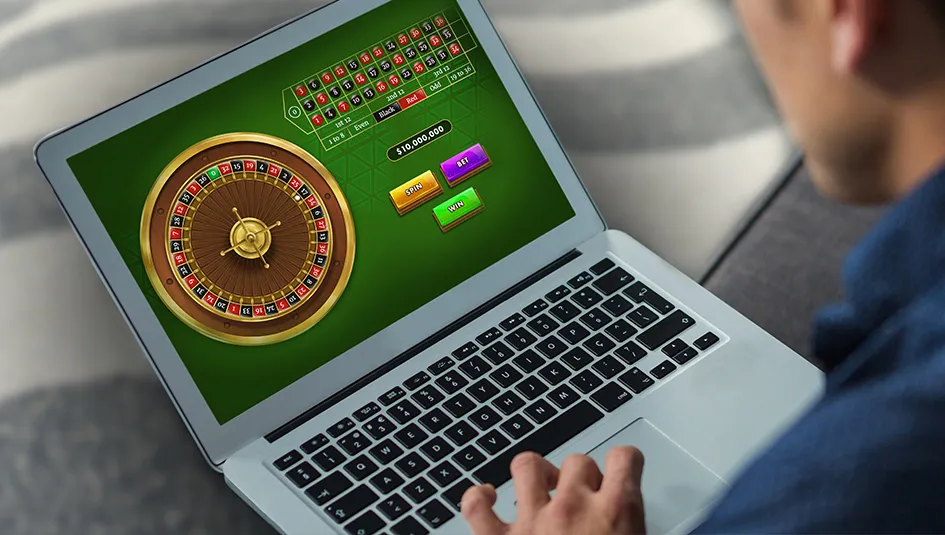What is AI and Machine Learning?
Artificial intelligence (AI) is a field in computer science that emphasises the creation of intelligent machines that react and work like humans. Some activities that computers with artificial intelligence are designed to include speech recognition, learning, planning, and problem-solving.
Machine learning, on the other hand, is a subset of AI that focuses on the development of computer programs that can access data and use it to learn for themselves. It's about designing algorithms that allow computers to learn from and make decisions or predictions based on data.
These technologies are becoming increasingly prominent in our day-to-day lives. From suggesting the quickest route on your satellite navigation system to providing personalised movie recommendations on Netflix, AI and machine learning are transforming numerous aspects of our everyday experiences.
AI and Machine Learning in Online Casinos
Online casinos have been particularly proactive in adopting these technologies. In these platforms, AI and machine learning are being utilised in a myriad of ways, such as tailoring player experiences, detecting fraudulent activities, and even ensuring game fairness.
AI algorithms can assess a player's behaviour, betting patterns, and preferences to personalise their casino experience. This could mean suggesting games that a player might enjoy or providing customised bonuses and promotions.
On the security front, AI and machine learning have proven invaluable in detecting and preventing fraudulent activities. By learning from vast datasets of fraudulent and non-fraudulent activities, these systems can spot suspicious behaviour patterns and flag them for investigation.
Another critical application lies in ensuring game fairness. Online casinos are increasingly using AI to monitor games and players, ensuring that all play is fair and above board.
AI, Machine Learning and Online Roulette
The incorporation of AI and machine learning in online roulette is a game-changer, significantly reshaping both the game's operations and the player's experience. Here, we delve further into the specifics of these innovative applications.
Random Number Generation (RNG):
In online roulette, the role of the spinning wheel and bouncing ball is essentially taken over by a complex algorithm known as a Random Number Generator (RNG). This mathematical formula ensures that each spin of the digital roulette wheel is entirely random and independent of any previous or future spins. AI and machine learning play a crucial part in this. They help in fine-tuning these algorithms, analysing vast amounts of data to ensure the RNG remains entirely random, unpredictable, and, most importantly, fair. This assures players that every spin is an independent event and cannot be manipulated.
Predictive Modelling:
AI and machine learning have dramatically advanced the capabilities of predictive modelling, enhancing the overall gaming experience. Online casinos can use these technologies to track and analyse a player's behaviour and betting patterns over time. Based on this analysis, the system can anticipate a player's preferences and make informed predictions about their future behaviour. For instance, it might offer tailored game recommendations or bespoke bonuses, adding a personal touch to the online roulette experience. This level of personalisation can make online roulette more engaging and satisfying for players.
Pattern Identification and Strategy Development:
On the flip side, some players are using AI and machine learning to up their roulette game. By inputting data on previous spins and results into a machine learning model, players can identify patterns and trends that can inform their betting strategies. This could include determining the frequency of certain numbers or colours appearing, or the distribution of odd and even numbers. While it's important to stress that no strategy can guarantee a win in a game of chance like roulette, these insights can provide a more structured approach to betting and can make the game even more engaging.
Chatbots and Customer Service:
AI has also improved the realm of customer service in online casinos. AI-powered chatbots can provide instant responses to common player queries, including questions about roulette rules, payouts, or technical issues. These chatbots use machine learning to continuously improve their understanding and response to customer enquiries. They can handle multiple queries simultaneously, providing efficient and effective assistance and thereby enhancing the player's overall experience.
Cheating and Fraud Detection:
With the digitalisation of roulette comes the increased risk of cheating and fraudulent activities. AI and machine learning can help online casinos combat this risk. By analysing vast amounts of data from player behaviours and betting patterns, AI algorithms can identify anomalies that might indicate cheating or fraud. Once detected, the online casino can take swift action, ensuring a fair and secure environment for all players.
In conclusion, AI and machine learning have brought about significant advancements in online roulette. They've enhanced the fairness of the game, personalised the player experience, assisted in strategy development, improved customer service, and bolstered security measures. As we continue to make strides in these technologies, we can expect further improvements and innovative applications in online roulette.
The Pros and Cons of AI in Online Roulette
As with any technology, the use of AI and machine learning in online roulette comes with its own set of advantages and potential drawbacks.
On the plus side, these technologies can significantly enhance the gaming experience. The ability of AI to personalise the player's experience can make for a more engaging and satisfying game. Plus, the application of AI and machine learning to ensure game fairness and security can provide players with greater peace of mind.
However, there are also potential concerns. Data privacy is a significant issue, as the use of AI and machine learning requires the collection and analysis of vast amounts of player data. While reputable online casinos take measures to protect player data, the risk of data breaches can never be entirely eliminated.
Future Possibilities for AI and Online Roulette
The rapid advancement of AI and machine learning paints a promising future for online roulette. As technology continues to evolve, we can expect to see significant changes and improvements, enhancing not only the gameplay experience but also the operations behind the scenes. Let's consider some of the potential advancements on the horizon.
Tailored Gaming Experiences:
While AI already offers a certain degree of personalisation, the future may hold even more finely-tuned customisation. Imagine an online casino that understands your gaming habits and preferences so well that it can adjust itself in real-time. This could mean games adjusting their speed or difficulty based on how you're playing, bonuses tailored specifically to your playing style, or even visual and audio settings that adapt to your preferences.
AI-powered Strategy Assistants:
As AI and machine learning become more accessible, we could see the development of AI-powered tools to assist players with their game strategies. These tools could provide real-time insights and advice, helping players understand the odds and make informed decisions. Remember, though, that roulette is a game of chance, and while these tools can offer guidance, they cannot guarantee a winning outcome.
Improved Security and Fairness:
AI and machine learning will become even more sophisticated in ensuring a fair and secure gaming environment. We might see AI systems that can identify and respond to fraudulent behaviour in real-time, or machine learning algorithms that continuously improve the randomness and fairness of the game outcomes.
Responsible Gambling Monitoring:
Another fascinating possibility is the use of AI and machine learning to monitor and promote responsible gambling. By identifying patterns of problematic gambling behaviour, these technologies could provide early warning signs of gambling addiction. They could also offer personalised tools and resources to help players manage their gambling habits.
Virtual Reality (VR) and AI Integration:
The future may see a convergence of VR and AI technologies, creating incredibly immersive and interactive gaming experiences. Picture yourself stepping into a virtual casino where AI-controlled characters interact with you in real-time, creating a gaming experience that's as close as possible to being in a physical casino.
Real-time Analytics:
AI could provide real-time analytics to players, offering insights into their betting patterns, winnings, losses, and more. This feature could help players make more informed decisions and develop better strategies.
Play the Latest Roulette Games at Spin Rio
The world of online roulette is undergoing a fascinating evolution, driven in no small part by advancements in AI and machine learning. As these technologies become more sophisticated and widespread, we can expect to see even more exciting developments in the future.
However, as we embrace these technological advancements, it's also crucial to remain aware of potential risks, especially when it comes to data privacy. It's also essential to remember that while AI can enhance the roulette experience in many ways, roulette remains a game of chance. No technology can predict with certainty where the ball will land.
As players, the goal is to enjoy the game and play responsibly. As we navigate this high-tech future, let's not forget the simple thrill of watching the wheel spin and waiting for the ball to land – a thrill that is more than available here at Spin Rio and one that has captivated roulette players for centuries and will continue to do so for many more to come.

 Explore Lesser-Known Roulette Strategies for a Winning Spin
Explore Lesser-Known Roulette Strategies for a Winning Spin Roulette Psychology and the Gambler's Fallacy Unveiled
Roulette Psychology and the Gambler's Fallacy Unveiled